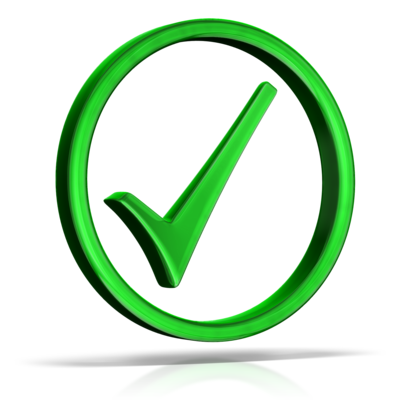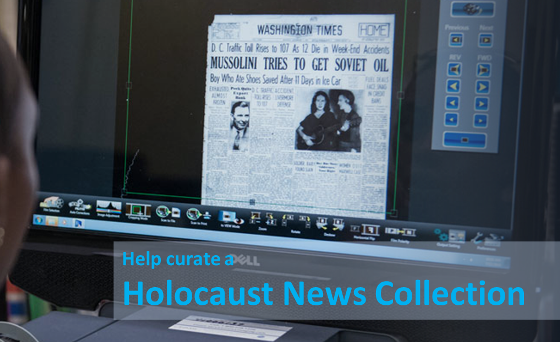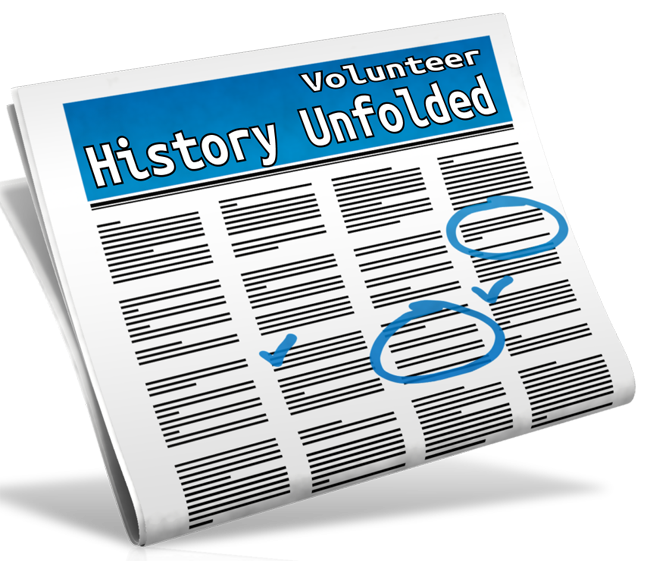by Lisa Cooke | Mar 31, 2015 | 01 What's New, Adoption, images, United States
 Recently Genealogy Gems Premium member Katharine Ott wrote in this with newsworthy gem:
Recently Genealogy Gems Premium member Katharine Ott wrote in this with newsworthy gem:
“Recent adoption records are being released in Ohio. Such an exciting time for those adoptees yearning to connect with their bloodlines! Before the bill took effect, they allowed birth mothers to redact their names. Out of 400,000 only around 110 took them up on that. There’s also a preference form with the birth records where the mother can request not to be contacted. I wonder how often that might not be respected. It’s such an interesting situation for someone to be in.”
Wow, that’s huge news about Ohio adoption records! Thanks for the news, Katharine. She sent us this link to a local news story that covers the story. The Ohio Department of Health posted this webpage about ordering adoption records.
Want to learn more about accessing adoption records in any state? Check out the U.S. Adoption Research page at the FamilySearch wiki for a terrific overview and helpful links.
 Also, try running a Google search for the name of the state and the keywords adoption and genealogy. You’ll find lots of great resources, like this page on adoption records at the Pennsylvania state library or this online resource from the State Historical Society of Missouri.
Also, try running a Google search for the name of the state and the keywords adoption and genealogy. You’ll find lots of great resources, like this page on adoption records at the Pennsylvania state library or this online resource from the State Historical Society of Missouri.
The right Google search can shorten your search for the records you want! This tip brought to you by the newly-published, fully-revised and updated 2nd edition of The Genealogist’s Google Toolbox, Second Edition by Lisa Louise Cooke.
by Lisa Cooke | Jun 24, 2017 | 01 What's New, Jewish, Newspaper, Volunteer
Looking for an easy way to make a big difference? Help collect Holocaust newspaper articles printed in your local newspapers for the History Unfolded project of the United States Holocaust Memorial Museum. Do it on your own, or with your local genealogical or historical society!

The following article came to us via Newspapers.com:
What is History Unfolded? History Unfolded is a project that seeks to expand our knowledge of how American newspapers reported on Nazi persecution during the 1930s and ’40s so we can better understand what Americans knew about the Holocaust as it was happening.
To help achieve this, the History Unfolded project asks people like you to search local newspapers from the 1930s and ’40s for Holocaust-related news and opinions and then submit them online to the museum. The newspaper articles you submit will be used to help shape the museum’s 2018 exhibit on Americans and the Holocaust and related educational materials. The articles will also be made available to scholars, historians, and the public.
Who Can Contribute? Everyone! History buffs, students, teachers (with) an interest in the Holocaust and access to a newspaper from the 1930s or ’40s, either online (using Newspapers.com, for example) or through a physical archive, such as a library. Simply create an account with History Unfolded (to get started.)
How Do I Contribute? History Unfolded has created a list of more than 30 Holocaust-related events to focus on. Choose one of these events to research, then search for content related to that topic in an American newspaper of your choice from the 1930s or ’40s. After you find an article related to one of the events, submit it online to the museum through the project’s website.
 Newspapers.com and History Unfolded You can contribute to this important project whether or not you use Newspapers.com to do so. But using Newspapers.com makes it even easier to submit the articles you find. Simply use Newspapers.com to create a clipping of an article you’ve found, then submit that clipping through the submission form on the History Unfolded website. The submission form has a special tool created specifically for Newspapers.com users that makes submitting your clipping a snap.
Newspapers.com and History Unfolded You can contribute to this important project whether or not you use Newspapers.com to do so. But using Newspapers.com makes it even easier to submit the articles you find. Simply use Newspapers.com to create a clipping of an article you’ve found, then submit that clipping through the submission form on the History Unfolded website. The submission form has a special tool created specifically for Newspapers.com users that makes submitting your clipping a snap.
Your help with this project will help shape our understanding of the Holocaust and the lessons it holds for us today. For more information on how to get involved, visit the History Unfolded website.
Get involved! Click here to read about more ways to volunteer in our global genealogy community. Your efforts make a huge difference.
by Lisa Cooke | Jul 9, 2015 | 01 What's New, Beginner, Brick Wall, images, MyHeritage, Records & databases, Technology
 At some point in the past, many of our relatives–overseas or in the same land–spoke a different language. They used different versions of names we know. Records about their lives were created in a language we don’t know, whether their home tongue or the language of an institution, like church records in Latin.
At some point in the past, many of our relatives–overseas or in the same land–spoke a different language. They used different versions of names we know. Records about their lives were created in a language we don’t know, whether their home tongue or the language of an institution, like church records in Latin.
Well, MyHeritage has just launched a groundbreaking new technology today that aims to remove language barriers in family history research. “Global Name Translation™ helps overcome the Tower of Babel syndrome,” says Gilad Japhet, Founder and CEO of MyHeritage. “The world is getting smaller and more connected, yet information from other countries is still mostly hidden from those who don’t speak the language.
Now you can now search for historical records at MyHeritage “in one language and receive relevant results from other languages, automatically translated for you into the language of your search,” explains Japhet.  For example? “A search for Alessandro (Alexander in Italian) will also find ‘Саша’ (which is the Russian form of Sasha, a popular nickname of Alexander in Russia) with its corresponding transliteration into the language of your search.”
For example? “A search for Alessandro (Alexander in Italian) will also find ‘Саша’ (which is the Russian form of Sasha, a popular nickname of Alexander in Russia) with its corresponding transliteration into the language of your search.”
This technology is also integrated into MyHeritage matching technologies, so subscribers will begin receiving transliterated matches from other languages.
According to a press release, Global Name Translation™ works with “very high accuracy, generating all the plausible translations, to facilitate matches between names in different languages. In addition, a manual search in one language will also provide results in other languages, translated back to the user’s language for convenience. This is a unique innovation not offered elsewhere, useful for anyone interested in discovering their global roots.”
The first version works with several languages: English, German, Dutch, French, Spanish, Catalan, Portuguese, Italian, Norwegian, Swedish, Danish, Greek, Hebrew, Polish, Czech, Russian and Ukrainian. “The next version currently in development will add Chinese and Japanese, and additional languages will follow.”
 Click here to learn more reasons we love MyHeritage, which is a sponsor of the free Genealogy Gems podcast, or click here to explore MyHeritage yourself. If you are looking for a language translation tool for genealogy outside of MyHeritage, check out the chapter on Google Translate in the fully-revised and updated second edition of The Genealogist’s Google Toolbox by Lisa Louise Cooke.
Click here to learn more reasons we love MyHeritage, which is a sponsor of the free Genealogy Gems podcast, or click here to explore MyHeritage yourself. If you are looking for a language translation tool for genealogy outside of MyHeritage, check out the chapter on Google Translate in the fully-revised and updated second edition of The Genealogist’s Google Toolbox by Lisa Louise Cooke.
 Recently Genealogy Gems Premium member Katharine Ott wrote in this with newsworthy gem:
Recently Genealogy Gems Premium member Katharine Ott wrote in this with newsworthy gem:![]() Also, try running a Google search for the name of the state and the keywords adoption and genealogy. You’ll find lots of great resources, like this page on adoption records at the Pennsylvania state library or this online resource from the State Historical Society of Missouri.
Also, try running a Google search for the name of the state and the keywords adoption and genealogy. You’ll find lots of great resources, like this page on adoption records at the Pennsylvania state library or this online resource from the State Historical Society of Missouri.

 Newspapers.com and History Unfolded You can contribute to this important project whether or not you use Newspapers.com to do so. But using Newspapers.com makes it even easier to submit the articles you find. Simply use Newspapers.com to create a clipping of an article you’ve found, then submit that clipping through the
Newspapers.com and History Unfolded You can contribute to this important project whether or not you use Newspapers.com to do so. But using Newspapers.com makes it even easier to submit the articles you find. Simply use Newspapers.com to create a clipping of an article you’ve found, then submit that clipping through the 

